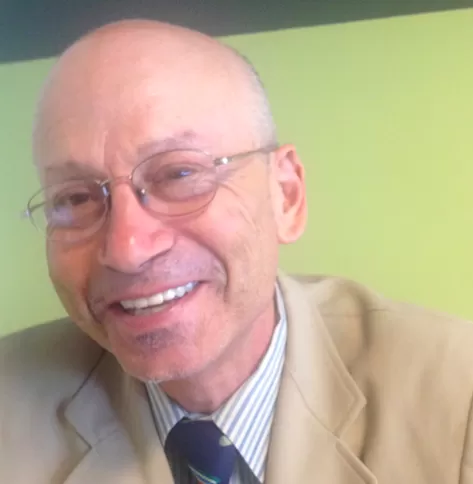Irvin Dawid discovered Planetizen when a classmate in an urban planning lab at San Jose State University shared it with him in 2003. When he left San Jose State that year, he took with him an interest in Planetizen, if not the master's degree in urban & regional planning.
As a long-time environmental activist, he formed the Sustainable Land Use committee for his local Sierra Club chapter and served six years on the Bay Area Air Quality Management District’s Advisory Council from 2002-2008. He maintains his interest in air quality by representing Sierra Club California on the Clean Air Dialogue, a working group of the Calif. Environmental Dialog representing business, regulatory and public health/environmental interests.
Major interests include transportation funding, e.g., gas taxes, vehicle miles traveled (VMT) fees, road tolls and energy subsidies that lead to unlevel playing fields for more sustainable choices.
He hails from Queens (Bayside) and Long Island (Great Neck); received an AAS in Fisheries & Wildlife Technology from SUNY Cobleskill and a B.S. from what is now Excelsior College.
After residing for three years on California’s North Coast, he’s lived on the San Francisco Peninsula since 1983, including 24 years in Palo Alto. Home is now near downtown Burlingame, a short bike-ride to the Caltrain station.
He’s been car-free since driving his 1972 Dodge Tradesman maxi-van, his means to exit Long Island in 1979, to the junkyard in 1988.
Major forms of transportation: A 1991 'citybike' and monthly Caltrain pass, zone 2-2. "It's no LIRR, but it may be the most bike friendly train in America."
Irvin can be reached at [email protected]
San Francisco Pilot Parking Program Watched By Other Cities
The search for an available parking space in most busy downtowns can be frustrating, especially when the motorist insists on parking for free. For those cities that do charge for parking, can a variable price free-up spaces? SF hopes to prove so.
Oil Drilling Myths Exposed By Paul Krugman
New York Times economics writer and Nobel laureate Paul Krugman analyzes two major reasons for increasing oil drilling - reducing unemployment and lowering gas prices, and describes why it does neither.
Harvard Study: Cheap Natural Gas Decreased 2009 Climate Emissions
A new report attributes a 9% decrease in greenhouse gas emissions from the nation's power plants in 2009 to the relatively cheap price of generating electricity from natural gas versus coal.
World Poverty Declines Despite Recession
Defying logic, as the world entered recession its poorest made inroads out of "extreme poverty" according to a new World Bank report. In 2009 a similar report predicted just the opposite would happen due to recession. Why the improvement?
Getting To $2.50 Gasoline - A Marketplace Final Report
In this second and final look at how to achieve Republican presidential candidate Newt Gingrich's promise of $2.50 gas, Marketplace's Kai Ryssdal reports on a subsidy strategy discussed in The Atlantic. Earlier he presented a price controls approach.

























